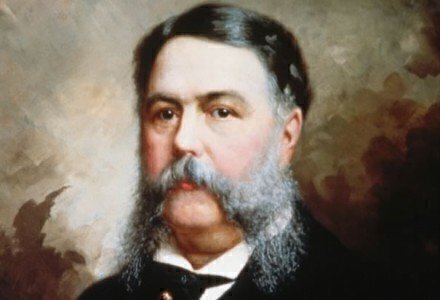The debate over Senator Ted Cruz’s birthplace has raised some interesting questions about other folks who sought, or make seek, the White House, with parents who were born outside the United States.

Cruz was born in Canada in 1970, with his father being from Cuba and his mother coming from Delaware in the United States.
The Constitution’s Natural Born Citizenship Clause states that “no person except a natural born Citizen, or a Citizen of the United States, at the time of the Adoption of this Constitution, shall be eligible to the Office of President.”
Recent thoughts from constitutional experts on Cruz’s situation seem to clearly point to one fact: Since Cruz’s mother was born in the United States as a citizen, Cruz is a “natural born” citizen through his mother’s own status back in 1970.
Sarah Helene Duggin from Catholic University, who is an expert on this topic, wrote at length for us about a potential Cruz candidacy back in October 2013, and she explained why scholars believe Cruz is eligible. “There is a strong argument that anyone who acquires United States citizenship at birth, whether by virtue of the 14th Amendment or by operation of federal statute, qualifies as natural born,” she said.
Former Solicitors General Paul Clement and Neal Katyal made the same argument in the Harvard Law Review recently about Cruz.
“Congress has recognized since the Founding, a person born abroad to a U.S. citizen parent is generally a U.S. citizen from birth with no need for naturalization. And the phrase “natural born Citizen” in the Constitution encompasses all such citizens from birth,” they said.
Clement and Katyal also explained the same logic applied to three past presidential candidates who were born outside of a specific state: John McCain (Panama Canal Zone), George Romney (Mexico) and Barry Goldwater (Arizona Territory).
But another argument cropped up in these “Natural Born” debates: What about candidates born in the United States with parents who weren’t United States citizens at the time?
This is actually a debate that goes back to 1880, when Chester Alan Arthur ran as the vice presidential candidate on the James Garfield ticket for the Republican Party. Arthur became President after Garfield’s death in 1881 and there rumors that Arthur had been born in Canada, and not Vermont, as he claimed. Arthur’s father was born in Ireland and his mother was born in the United States.
If Arthur was born in Canada, some claimed, there may have been a citizenship issue.
Marquette Law professor J. Gordon Hylton pointed out in a 2009 blog post if Arthur was born in Canada “he was technically foreign-born, and in 1829, citizenship in such cases passed to the child only if the father was a United States citizen, and, of course, at this point Arthur’s father was still a citizen of the British Empire.”
Hylton also pointed out that the Supreme Court’s 1830 ruling in Inglis v. Trustees of Sailor’s Snug Harbor and other cases made it clear that having a father as a United States citizen wasn’t mandatory in such cases.
Justice Joseph Story’s concurrence in the Inglis decision cited Blackstone’s commentaries, saying that “nothing is better settled at the common law than the doctrine that the children, even of aliens, born in a country while the parents are resident there under the protection of the government and owing a temporary allegiance thereto, are subjects by birth.”
Soon after Arthur’s time in the White House, the Supreme Court made it clear in the case of Wong Kim Ark in 1898 that a child born in the United States automatically became a citizen regardless of the parents’ citizenship status.
“All persons born or naturalized in the United States, and subject to the jurisdiction thereof, are citizens of the United States and of the State wherein they reside,” said Justice Horace Gray.
There was also a birthplace controversy over the 1916 presidential candidacy of Charles Evans Hughes, the Republican who narrowly lost to Woodrow Wilson. There were claims that Hughes was ineligible for office because his father was born in the British Empire. Hughes was born in Glen Falls, New York, and his mother was also born in New York state.
And two potential candidates in the 2016 presidential race in addition to Cruz have parents who were born overseas.
Bobby Jindal’s parents were from India, but Jindal was born in Baton Rouge, Louisiana. In 2011, Jindal released his birth certificate to prove he was born in Baton Rouge.
And Marco Rubio’s parents came to the United States from Cuba in the 1950s. Rubio was born in 1971 in Miami.
Scott Bomboy is the editor in chief of the National Constitution Center.







